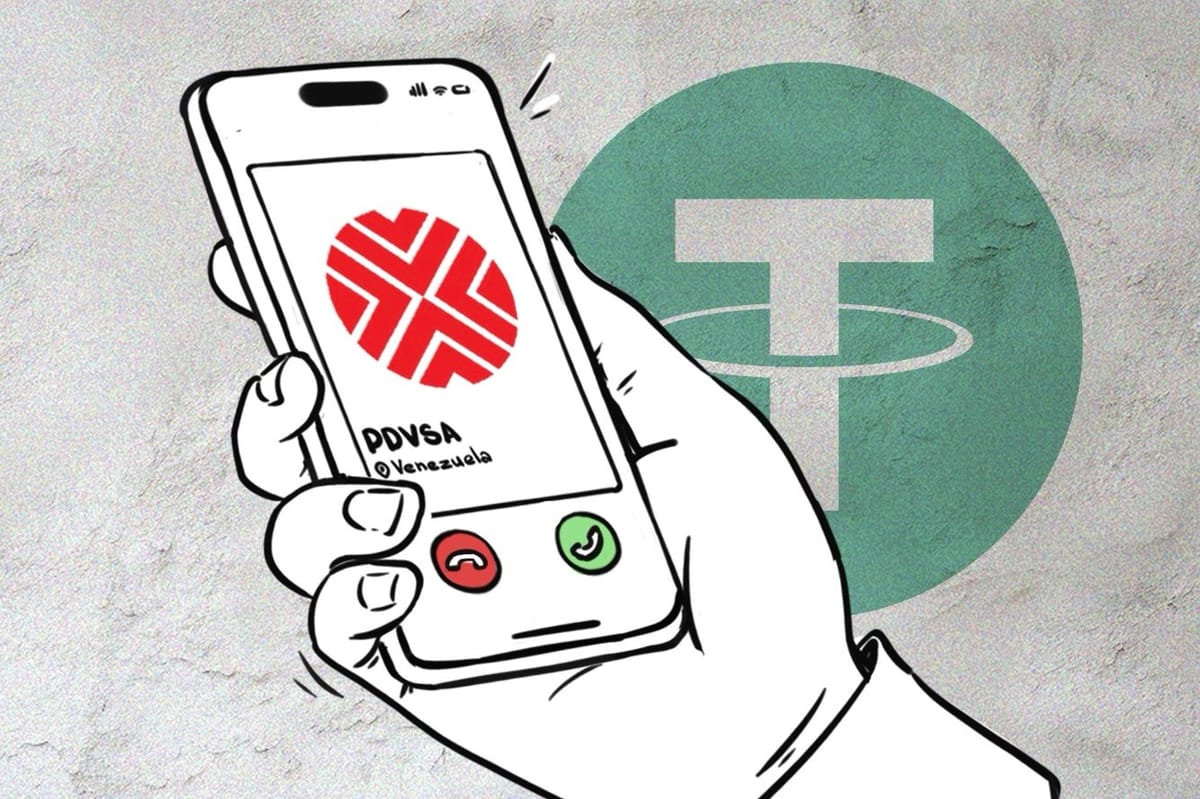
Venezuela's state-run oil company is reportedly turning to the USDT stablecoin as it seeks to sidestep looming sanctions imposed by the U.S. government.
According to the Reuters news agency, the move is designed to prevent PDVSA's income from being frozen in foreign bank accounts. However, traders may often be unwilling and unable to transact this way — especially if it fails to meet their compliance standards.
Nonetheless, this new approach throws up some interesting questions.
For one, Tether's suggesting it may not play ball if its stablecoin is being used as a workaround for punishment imposed against Nicolas Maduro, who has been accused of failing to allow competitive elections to take place this summer.
In response to Reuters, a Tether statement had said:
"[Tether] is committed to working to ensure sanction addresses are frozen promptly."
With a market capitalization of $109 billion, Tether has comfortably established itself as largest stablecoin pegged to the U.S. dollar.
But the bigger question relates to whether Tether would bow to Washington's sanctions if asked to do so — perhaps fearing recriminations on its other lucrative operations.
The company recorded a profit of $6.2 billion last year — $2.85 billion of that in the final quarter of 2023 alone — and is unlikely to want to alienate politicians as long-awaited laws related to stablecoins come closer into view.
Somehow inadvertently, the situation draws attention to alternatives like Ethena's USDe — a "synthetic dollar" that aims to eliminate the reliance that other stablecoins have on the old-fashioned banking system.
That project has previously warned that established assets like USDT and USDC have a "centralized kill-switch" that could be activated if something happens that regulators don't like.
Overall, stablecoins have had little traction when it comes to being used by major industries. The likes of Travala do allow USDT to be used for booking flights and hotels — and it's also accepted in some pockets of the adult entertainment sector.
While you could argue that Tether is a force for dollarization — increasing USD's relevance in an increasingly digital economy by broadening access to dollars — stablecoins and CBDCs have the potential to change all this in the years to come.
BRICS — the trading bloc consisting of Brazil, Russia, India, China and South Africa — are exploring launching their own stablecoin that would reduce their dependency on USD in global commerce.

